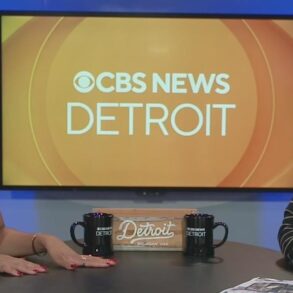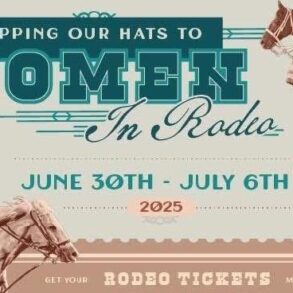
Haymakers were thrown yesterday by Kendrick Lamar towards Drake as rap’s top bout enters another round, following duels involving undercards such as J Cole, Rick Ross, Future and A$AP Rocky.
Lamar initially rang the bell a month ago with Like That, slagging off Drake as a mere pop star. Drake came back with Push Ups, featuring the allegation that Lamar’s wife was cheating on him (among various other barbs). Before Lamar could respond, Drake released Taylor Made Freestyle, which used AI to cheekily have 2Pac and Snoop Dogg – two of Lamar’s west coast forebears – chide Lamar for not following up soon enough.
Follow up he now has, with Euphoria, which many are putting straight into the diss track hall of fame thanks to a sustained barrage of blows against Drake’s Blackness, street credibility, artistic depth, financial agreements, romantic relationships and more.
The central thesis
The thrust of Lamar’s track is that Drake certainly isn’t street, and isn’t really Black – or at the very least, isn’t fully embraced by Black culture. He instructs him not to say the N-word, says he’s “faking for likes and digital hugs” and raps: “You’re not a rap artist, you a scam artist with the hopes of being accepted / Tommy Hilfiger stood out, but Fubu never had been your collection.” The suggestion is that Drake wears Tommy Hilfiger, a designer regarded distrustfully in hip-hop following a rumour that he was hostile to Black consumers (which he denied), but not Fubu, the Black-owned brand For Us, By Us.
As if that wasn’t clear enough, later there’s this: “How many more fairytale stories ’bout your life till we had enough? / How many more Black features till you finally feel that you’re Black enough?” And “you got shit twisted / What is it? The braids?” is a funny line that takes aim at Drake’s braided hair, seen as an attempt to appear more conventionally Black.
Euphoria at times echoes what was previously the most high-profile and successful diss track against Drake: The Story of Adidon, by Pusha T. While the revelation of Drake having a secret child with a porn star was that track’s biggest gotcha, other lines, alleging that Drake paraded his Black father to assert his Blackness, were equally stinging. Pusha also isolated his hair: “Confused, always felt you weren’t Black enough / Afraid to grow it ’cause your ’fro wouldn’t nap enough.”
The threats
Another major echo of The Story of Adidon comes in how Lamar chides Drake for not, in his eyes, properly raising his son Adonis, in a sustained series of unadorned lines: “Giving him tools to walk through life like day-by-day, know nothing ’bout that / Teaching him morals, integrity, discipline, listen, man, you don’t know nothing ’bout that.” Lamar’s hackles are clearly up after Drake’s allegation about his wife, and escalates the family drama: “Talk about me and my family, crodie? / Someone gon’ bleed in your family, crodie” is the track’s most blatant threat.
The wordplay
There’s another threat in another line about family: “Dementia must run in his family, but let it get shaky / I’ll park his son” – “park” being shorthand for shutting someone up with force, and a play on Parkinson’s. Who the son and father are is open to interpretation – it’s not quite the “motherfucking quintuple entendre” that Drake asked for on Taylor Made Freestyle, but there’s a lot to unpack, even if the pun veers on being laboured and clever-clever. More straightforwardly fun is stuff like “let your core audience stomach that, then tell ’em where you get your abs from”, a reference to the longstanding rumour that Drake had cosmetic surgery on his abdominals.
The hidden meanings
“I hate the way that you walk, the way that you talk, I hate the way that you dress” works well as a bracingly straightforward statement – remarkable in an age when dissing tends to be folded into layers of subliminal meaning – but it’s actually a callback to how DMX once described Drake. Another choice Easter egg is at the very beginning, with a reversed recording of Richard Pryor in The Wiz, saying: “Everything they say about me is true” – the next line in the film being: “I’m a phoney.”
The low points
There can be something hectoring about Lamar at times in his discography, less the Mr Morale of his last album and more Mr Moralising – and this turns ugly with some outright misogyny on Euphoria. He refers to gossiping as “ho shit” even as he delivers a gossipy diss track, and “we hate the bitches you fuck, ’cause they confuse themselves with real women” is gross even if you take it as a subliminal reference to Drake’s oft-remarked-upon friendships with teenage girls and women. There are frequent lines comparing Drake to a woman, which Lamar tries to legitimise by amping women up – “I believe you don’t like women, it’s real competition” – but it’s patronising, and there’s a whiff of homophobia in framing Drake as being less than a real man for having feminine qualities. That also comes through in his loaded praise of Drake’s danceable music – “Keep making me dance, waving my hand, and it won’t be no threat” – and in saying Drake “pops ass” while dancing with women.
The homophobia becomes horribly explicit on a line that calls Drake’s OVO labelmates “dick riders”, using gay sex as a diss. It was repellent when Nas was doing it on his own hall-of-fame diss track Ether, and that was back in 2001; Lamar, whose artistry rests on his self-presentation as flawed but enlightened, demeans himself here. Also, the three-part beat is blah even if Lamar does ride it with skill and animation. And no one apart from accountants cares about percentage splits in label deals, subject matter which results in some very dull lines.
The next steps
There will probably be much social media discussion around mixed-race identity, colourism and what constitutes “real” Blackness – though Lamar isn’t really talking about mixed-race people generally, just one in particular. And that man-to-man enmity will no doubt continue. “If you take it there, I’m taking it further”: Lamar promises that if Drake retaliates, he’ll retaliate again. For all that endless war is an integral part of American life, that would probably be more than enough from this chapter. Drake has already shot back, posting a scene of Julia Stiles in 10 Things I Hate About You saying lines similar to Lamar’s “I hate the way that you dress” screed – a neat puncturing of Lamar’s occasional pomposity. Humour rather than anger will be Drake’s best recourse now, and we’ll certainly need some good jokes to keep the combat worth watching.








